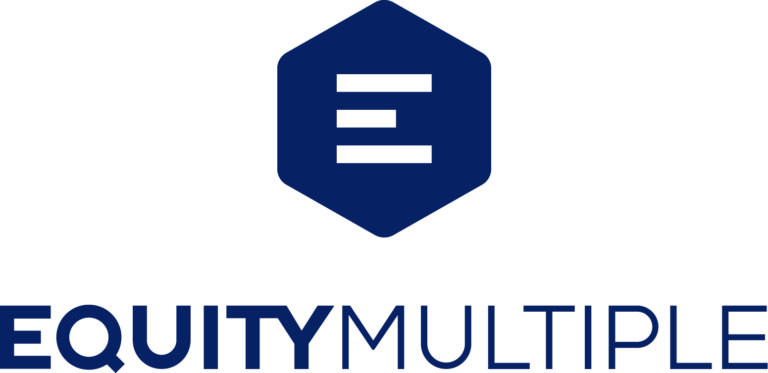All Categories
Featured
Table of Contents

As recognized capitalists, individuals or entities may take part in private financial investments that are not registered with the SEC. These capitalists are assumed to have the monetary elegance and experience needed to evaluate and purchase risky investment opportunities unattainable to non-accredited retail financiers. Below are a few to take into consideration. In April 2023, Congressman Mike Flooding presented H.R.
For currently, capitalists must follow the term's existing interpretation. There is no formal process or federal certification to become an accredited capitalist, a person might self-certify as a recognized capitalist under existing guidelines if they gained more than $200,000 (or $300,000 with a spouse) in each of the past two years and expect the same for the present year.
Individuals with an energetic Collection 7, 65, or 82 license are likewise considered to be accredited capitalists. Entities such as firms, collaborations, and trusts can also attain accredited investor condition if their investments are valued at over $5 million (Accredited Investor Property Investment Opportunities). As certified capitalists, individuals or entities might partake in exclusive financial investments that are not registered with the SEC.
What is the best way to compare Accredited Investor Real Estate Partnerships options?
Private Equity (PE) funds have actually revealed impressive growth in recent years, apparently undeterred by macroeconomic obstacles. PE companies pool resources from recognized and institutional capitalists to acquire managing passions in mature personal firms.
Along with funding, angel investors bring their professional networks, guidance, and know-how to the start-ups they back, with the assumption of endeavor capital-like returns if the business removes. According to the Facility for Venture Research, the typical angel investment quantity in 2022 was about $350,000, with financiers obtaining an average equity risk of over 9%.
That claimed, the advent of online private credit systems and particular niche sponsors has made the property course available to individual certified investors. Today, capitalists with as little as $500 to invest can make use of asset-based personal credit scores possibilities, which provide IRRs of approximately 12%. Regardless of the surge of shopping, physical grocery shops still represent over 80% of grocery store sales in the USA, making themand especially the property they run out oflucrative investments for accredited investors.
In comparison, unanchored strip facilities and community facilities, the next 2 most heavily negotiated kinds of realty, taped $2.6 billion and $1.7 billion in transactions, respectively, over the same duration. What are grocery store-anchored? Suburban shopping center, outlet shopping centers, and other retail facilities that include a major food store as the area's main renter usually fall under this group, although shopping malls with encased pathways do not.
To a lower extent, this sensation is likewise true backwards. This distinctly symbiotic relationship in between a facility's tenants drives up need and keeps leas boosted. Accredited capitalists can purchase these spaces by partnering with realty private equity (REPE) funds. Minimum investments usually start at $50,000, while overall (levered) returns range from 12% to 18%.
How do I get started with Private Property Investment Opportunities For Accredited Investors?
Over the last decade, art has actually earned average yearly returns of 14%, trouncing the S&P 500's 10.15%. The market for art is also broadening. In 2022, the worldwide art market grew by 3% to $67.8 billion. By the end of the decade, this number is anticipated to approach $100 billion.
Capitalists can currently possess diversified private art funds or purchase art on a fractional basis. These options include financial investment minimums of $10,000 and offer net annualized returns of over 12%. Equity capital (VC) remains to be just one of the fastest-growing asset classes in the world. Today, VC funds flaunt greater than $2 trillion in AUM and have released more than $1 trillion into venture-backed start-ups since 2018including $29.8 billion in Q3 2023 alone.

If you've seen ads genuine estate investments, or any type of various other form of investing, you may have seen the term "certified" prior to. Some investment possibilities will just be for "certified" capitalists which are 506(c) offerings. However, this leads some individuals to think that they can not invest in property when they can (besides, "accredited" seems like something you make or look for).
What should I look for in a Real Estate Investment Networks For Accredited Investors opportunity?
Nonetheless, what happens if you intend to purchase a local business? Possibly there's a restaurant down the street that you wish to buy to obtain a 25% equity stake. That restaurant, definitely, won't sign up with the SEC! That's where certified investing comes into play. That diner might get investments from accredited investors however not nonaccredited ones.

With that history in mind, as you might imagine, when someone gets financiers in a new house structure, they must frequently be approved. Numerous of them are open to nonaccredited investors.
Exactly how is that a nonaccredited realty investing alternative? The solution hinges on a nuance of the law. A nonaccredited realty investment possibility is a 506(b) bargain named after the area of the law that licenses it. Submissions under this regulation can not openly advertise their safety and securities, so it is required that the sponsors (people putting the submission with each other) have a preexisting relationship with the financiers in the bargain.
Probably the most straightforward and instinctive investment possibility for a person who doesn't have accreditation is acquiring and holding rental building. You do not need any kind of special classification to purchase the apartment or home down the road and rent it out to tenants. Certainly, that's a good idea because buying and holding leasings is a superb method to build your total assets! Typically, building worths value, and you can develop a steady monthly income stream! The only disadvantage is that you get on the hook for anything that fails! And, you require to manage all your occupants' inquiries even at 3am or work with a property manager to do so (which can come to be costly, depending on the location). Buying and holding rental residential properties is perhaps the most straightforward of all the unaccredited real estate spending options! You have actually certainly seen or come across all the turning programs on television.
Part of the reason these programs are all over is that turning does work mostly. You can locate homes cheaply, refurbish them, and sell them for a clean profit if you know where to look. Nonetheless, if you go behind the scenes on these programs, you'll commonly realize that these financiers do much of the work with their very own.
Rehab it to make it both rentable and boost the home's worth. Refinance the residential property to pull out as a lot of your first resources as feasible.
Are there budget-friendly Accredited Investor Property Investment Opportunities options?
What if you do not have that conserved up yet but still intend to buy real estate? That's where REITs are powerful. High-Return Real Estate Deals for Accredited Investors. REITs are firms that concentrate on property and trade on basic stock exchanges. You can buy them in your 401(k) or with any kind of basic broker agent account. These business normally purchase and run malls, buying centers, apartment, and other large actual estate financial investments.
Table of Contents
Latest Posts
Back Tax Properties For Sale
Tax Lien Sale List
Tax Foreclosure Property Listings
More
Latest Posts
Back Tax Properties For Sale
Tax Lien Sale List
Tax Foreclosure Property Listings